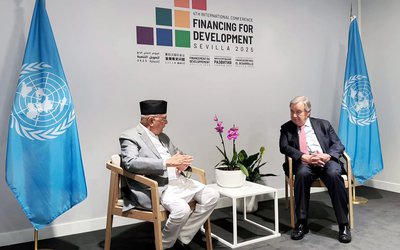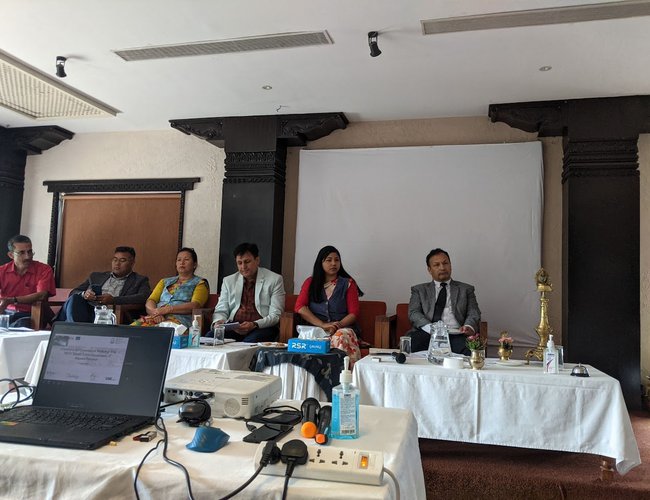
"After the discussion, it was recognized that energy efficiency is a key factor in making buildings environmentally friendly," said Dhan Raj Acharya, mayor of Pokhara Metropolitan City (PMC). To incorporate this element into the design and approval process, PMC intends to modify the building construction code. By adhering to technical requirements during building planning and construction, structures can be constructed to be energy-efficient and environmentally friendly, as stated by Mayor Acharya.
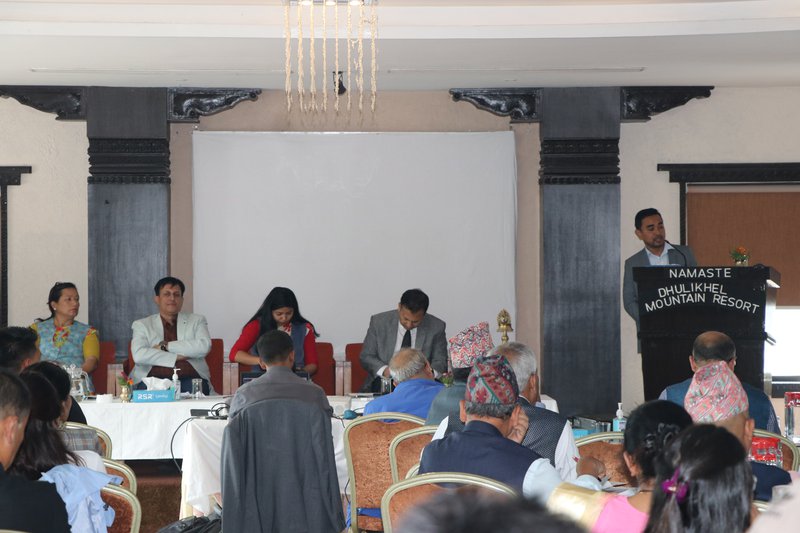
Kathmandu Metropolis City (KMC) is working to initiate a strategy to incorporate energy-efficient aspects into building design and restore older structures despite the limited remaining space for new construction.
"Following consultation with the BEEN technical team, it was acknowledged that damage had already occurred, but measures would be taken to rectify it and reduce future damage," said Sunita Dangol, Deputy Mayor of KMC.
Before providing clearance for private and public projects, the process of revising building codes and guidelines has already begun. Hetauda Sub-Metropolitan City is experiencing a significant increase in building construction as the provincial capital of Bagmati Province.
On August 4, Mina Kumari Lama, mayor of Hetauda Sub-Metropolitan City, addressed the orientation session in Dhulikhel and actively engaged in discussions with BEEN experts. "Our eyes have been opened by BEEN professionals," said mayor Lama.
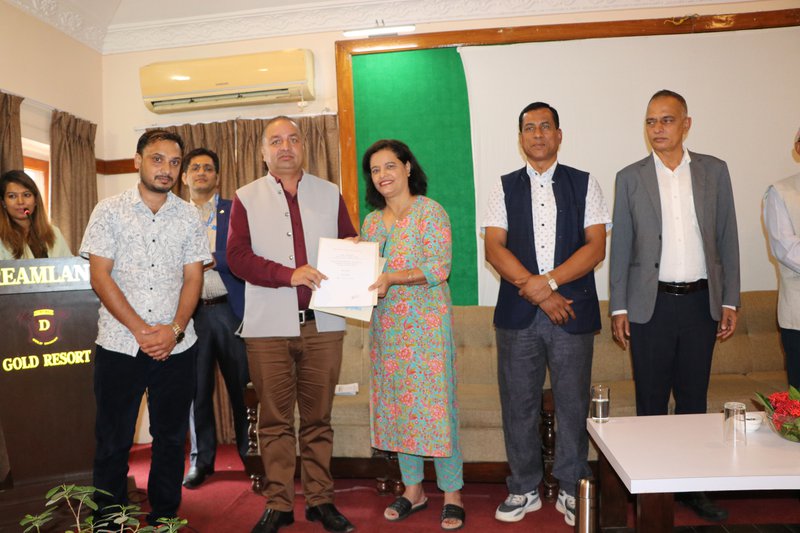
“The municipal government will take the required steps to make energy efficiency as the major criterion in building design and approval. With this summer's harsh heat, demands for cooling gadgets such as air conditioners and fans have skyrocketed, emphasized that building design is critical to make them environmentally friendly."
Since his election as mayor of Butwal Sub-Metropolitan City over a year ago, Khel Raj Pandey has prioritized making his city environmentally friendly. As a first step, he has authorized professionals from the Planning and Construction Division to include energy efficiency criteria into building designs and construction clearances.
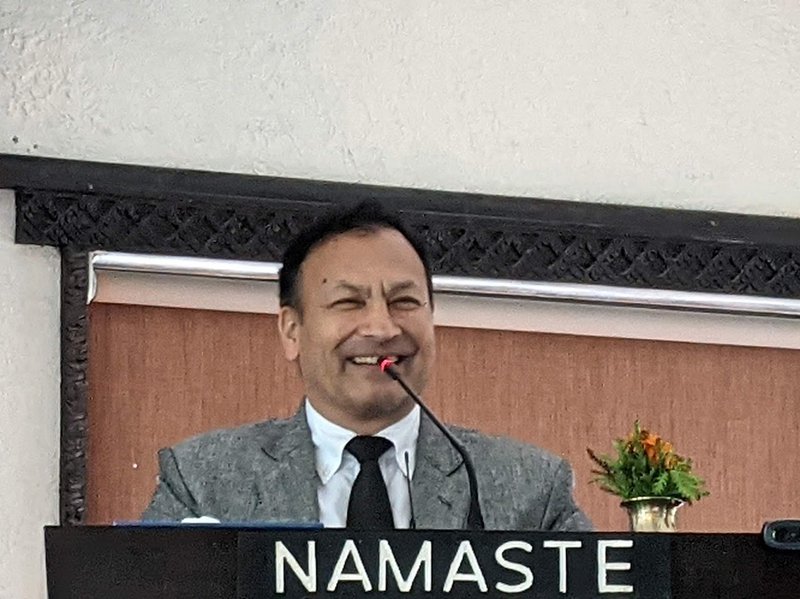
These statements are only a few. Local government leaders have modified their long-held opinions after interacting with BEEN experts at orientation and consultation seminars held this month in Kathmandu, Butwal, and Pokhara.
They now appreciate the importance of energy-efficient buildings in Nepal, not just in these four small towns. Due to its reliance on imported fossil fuels, Nepal faces energy security challenges.
"Energy-efficient buildings can reduce the country's reliance on costly energy imports and increase citizens' access to affordable energy," mayor Lama noted frankly. "We need to change criteria for new building design which must be different from Kathmandu."
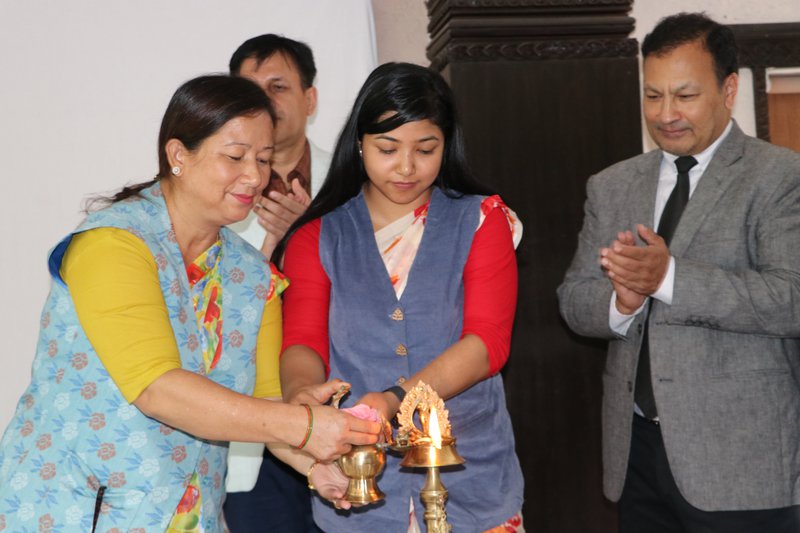
“The BEEN workshop helped me realize the significance of energy-efficient buildings in averting future energy and environmental disasters,” said Ashok Kumar Byanju, the mayor of Dhulikhel Municipality. “The municipality will revise its construction code with technical aid from BEEN.”
Workshop Highlights
The BEEN held workshops in three provinces -Bagmati, Gandaki, and Lumbini -with the goal of disseminating the critical components necessary to address the energy efficiency issue in building design and construction to local government authorities.
Local government consultations were held in Bagmati on August 4th, Lumbini on August 9th, and Gandaki on August 11th in Dhulikhel, Butwal, and Pokhara, respectively.
This one-day workshop emphasized the importance of developing a building code as soon as possible in order to prevent future environmental and energy crises, particularly for municipal governments.
The workshops were attended by 49 out of 60 local governments of the project areas. Lumbini had16 participants, Gandaki had 10 out of 16 participants, and Bagmati had 21 out of 23 working municipalities present.
BEEN also signed Memorandum of Understanding (MoU) with 15 municipalities, 10 in Gandaki and 5 in Lumbini, following the orientation.
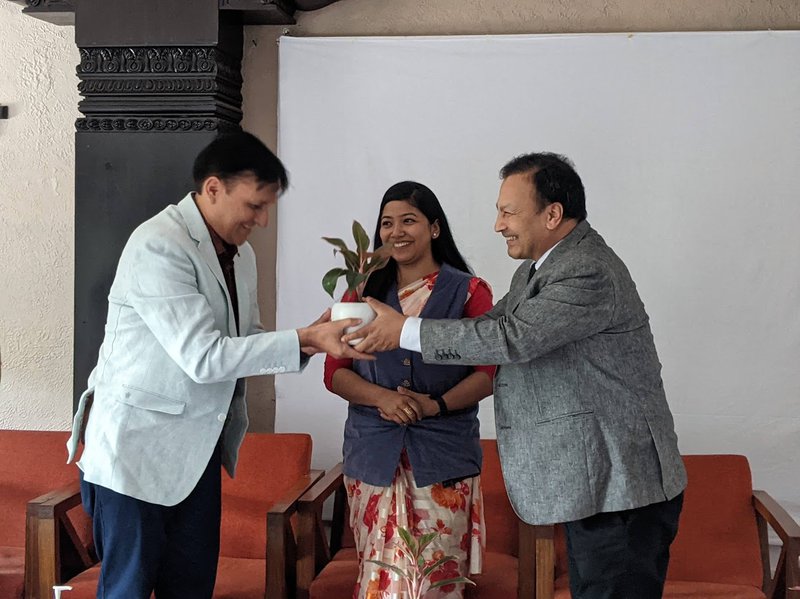
The presentations given in the workshop were straightforward, objective, and technically based, giving a picture of how to design an energy efficient building..
The workshops concentrated on the energy and carbon-intensive characteristics of Nepalese construction sites. As a result of orientations, leaders also learned how changing lifestyles, and climate influences have increased energy consumption for thermal comfort significantly.
“Because energy efficiency has a direct impact on the health, productivity, and operational costs of building occupants, these orientations aim to increase participants' understanding, promote constructive discussions, and foster knowledge about the importance of energy efficiency in the building sector. Furthermore, the seminars stressed the critical role that municipal officials can play in developing Nepal's sustainable building sector," said BEEN Team Leader Suyesh Prajapti.
The promises and commitments expressed by senior federal government officials, particularly from MoFAGA and MoFE, as well as DUBC officials, mayors and deputy mayors, provided a positive outlook emphasizing the importance of collaborative efforts among municipalities, the BEEN Project, and other related stakeholders. Most importantly , workshop was that participants pledged to implement innovative initiatives to improve energy efficiency in the building sector, with the ultimate goal of improving quality of life and conserving the environment for future generations," Prajapati added.
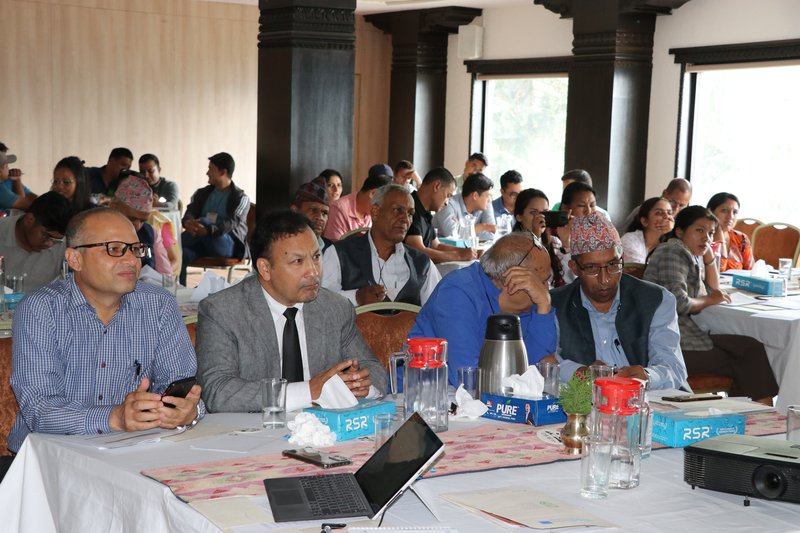
The BEEN project is now being conducted as a pilot project in 60 local governments across three provinces, out of 753 in seven provinces. However, the project is also raising awareness among other municipal governments.
Despite the fact that over a million public and private buildings have been constructed in Nepal over the last decade without taking energy efficiency-related criteria into account in their building design, the current set of local elected leaders' commitment to including an energy efficiency clause in building design and construction during a recently concluded orientation and consultations workshop was a game changer for the country's future.
One notable achievement of the workshop was that the Ministry of Federal Affairs and General Administration (MoFAGA), a nodal federal ministry, and local governments have taken ownership of the project to promote energy-efficient buildings.
"MoFAGA is delighted to be a project partner," said Kamal Prasad Bhattari, said Kamal Prasad Bhattarai, joint secretary for planning and Development Assistance Coordination Division. "This project is critical in order to reach zero emissions by 2045. "The Ministry will expand these projects to all seven provinces and local governments. "This type of capacity-building is essential for Nepal's local governments to strengthen their institutional capacity."
According to Nepal's 2015 Constitution, drafting legislation for building design clearance is the responsibility of local governments including Metropolitan, Sub-metropolitan, Municipality, and Rural Municipality. "It is the responsibility of municipal governments to approve designs and issue completion certificates to owners." The engineering section of local governments needs to be strengthened in this environment, and BEEN has been doing so," stated joint secretary Bhattarai.
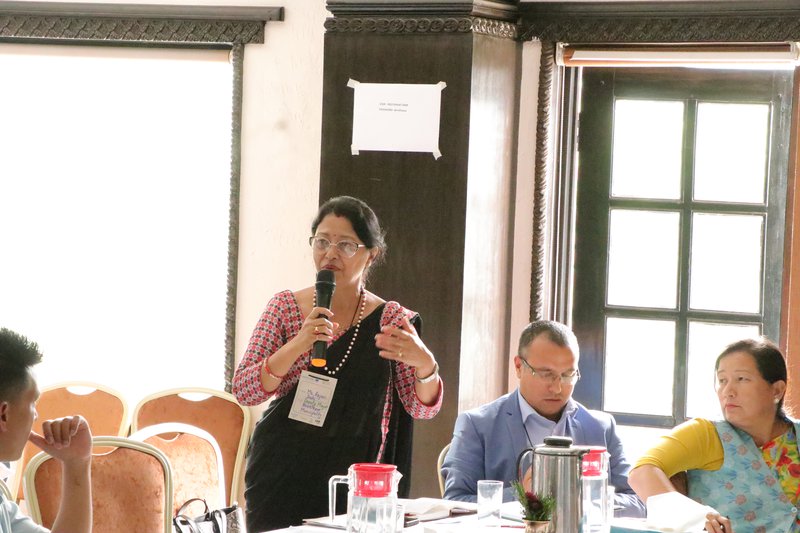
BEEN is a project funded by the European Union under the SWITCH-Asia program and implemented by a consortium led by the University of Innsbruck, Austria (UIBK), in collaboration with MinErgy Pvt Ltd, Nepal, Greentech Knowledge Solutions Pvt Ltd, India, and Asociación Espaola de Normalización (UNE), Spain, and in close collaboration with MoFAGA.
Dibya Acharya, senior architect BEEN, presented her paper on the technical approach to energy efficient building. She discussed technical challenges connected to the modalities and design for energy efficient buildings.
Despite the fact that all 24 local governments that have signed MoUs with the BEEN have the final approval authority to approve designs and grant construction permits, none of the existing designs have included energy saving components yet.
According to Om Dharananada Rajopadhyaya, Policy Specialist at BEEN, there is no EE building policy framework in all three provinces, including at the local level. "This issue has yet to be addressed by federal or local government policy."
Lowering greenhouse gas emissions through reducing energy use in buildings can help mitigate climate change and safeguard the environment. This is especially relevant in a country prone to climate change effects such as glacial melt and increased frequency of extreme weather events.
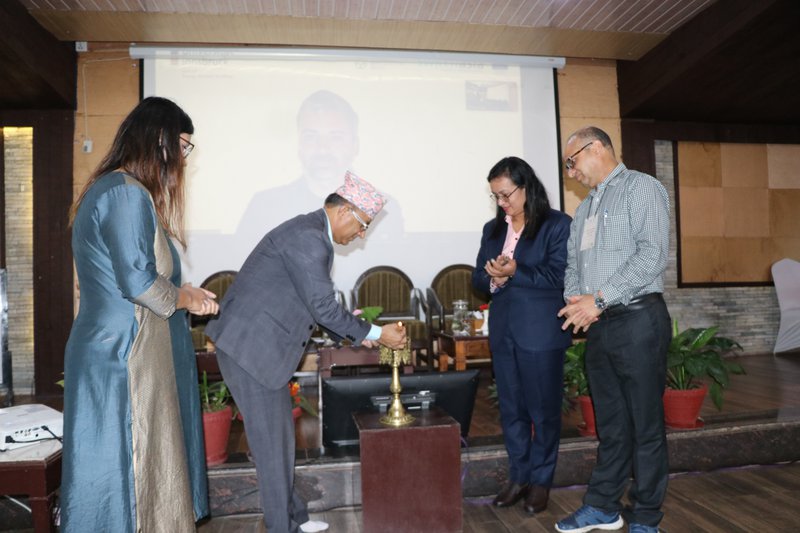
However, the implementation of BEEN as a pilot project has only just begun to address the need for a provision connected to energy efficiency criteria in building design and construction.
"The BEEN is promoting climate-responsive building designs and retrofitting, as well as the use of energy-efficient space heating and cooling technologies, resource-efficient building materials, and the integration of renewable energy sources, in collaboration with multiple stakeholders." The project aims to achieve results on multiple levels," stated Daniel Neyer, project leader BEEN via hybrid mode from the University of Innsbruck, Austria.
Nepal currently lacks standards, rules, and laws governing energy-efficient building design for new construction or retrofitting of existing structures. Building sector MSMEs' awareness and capacity on energy efficient buildings and service offerings remain poor.
"Energy-efficient buildings use less energy, which results in lower utility bills for homeowners and businesses." This can have a direct and positive influence on individual economic well-being and corporate competitiveness in Nepal," said Usha Maskey Manandhar, GESI and Policy Advisor at BEEN.
"Policy interventions by providing advisory on standards through local multi-stakeholder consensus processes, favorable policies create an enabling environment for scaling up of measures by builders/owners while also availing policy incentives for MSMEs to continue its services," Maskey Manandhar explained.
Addressing the program in Dhulikhel on August 4, Ranjan Prakash Shrestha, Senior Program Manager at the EU Delegation to Nepal said that EU has been supporting to Nepal to achieve zero emission target by 2045. “EU has been supporting projects and programs to promote clean energy and promote efficiency of use of energy in building as well. EU promotes use of cleaner technology and replaces the older and inefficient technology with new and efficient in building sector.”
“EU has been doing in the various sectors like in environment, agriculture, education, governance and energy. Strengthening institutional capacity of local government is also a part of EU’s program in Nepal,” said Shrestha, "EU is doing at the grass-root level has to be translated into the national policies,” said Shrestha. “EU is very happy to see the implementation of the project in Nepal which will contribute to achieving Nepal’s net-zero emission targets.”
Rishi Raj Acharya, under secretary, Environment and Disaster Management Unit, who participated in all three provinces as a representative of MoFAGA, commended the European Union for supporting a very important project for Nepal. "In the current context of increasing urban disasters caused by climate change, reducing energy consumption and promoting green is critical." MoFAGA will expand further based on the results of the BEEN."
"This is a pilot project to support the concept of green cities." "The enthusiasm shown by local leaders to include energy efficiency provisions in building design and approval supports Nepal's NDC," stated Switch Asia Focal Person and Undersecretary of the Ministry of Forest and Environment (MoFE), Gyanendra Mishra. "BEEN is the right project at the right time."
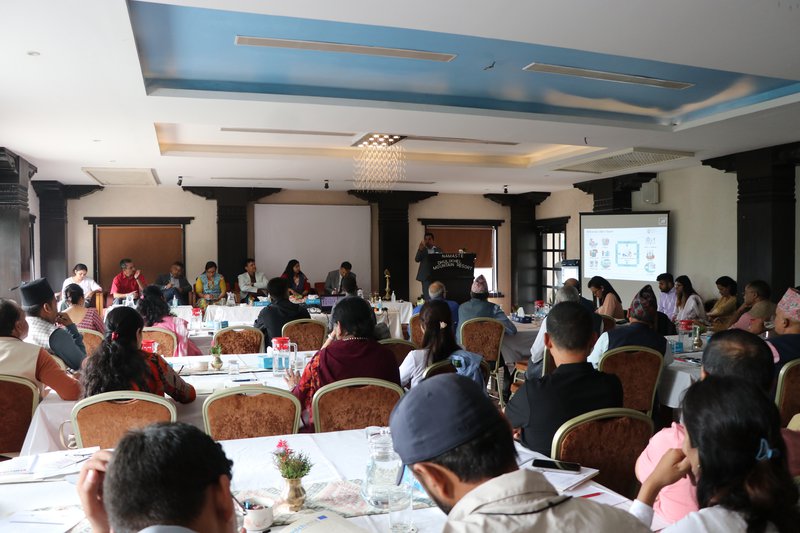
Sudha Ghimire, a representative from the Department of Urban Development and Building Construction (DuDBC), stated that the department is ready to collaborate with the BEEN on the construction of energy-efficient buildings.
Conducted by Sonie Shrestha, the BEEN project's Market System Development and Communication Officer, Shubha Laxmi Shrestha, Assistant Director, Energy Efficiency and Outreach Management at the Alternative Energy Promotion Center, said that the government has already set standard for certain electric appliances. The government is bringing the standard for household electric appliances such as fans, air conditioners, heaters, and other."
The BEEN project, in collaboration and partnership with MoFAGA has already arranged different events for energy efficient buildings. The workshops were held as part of the BEEN project's Output 4 project activity to support and collaborate with chosen municipalities.
Attendees participated in three separate sessions during the half-day program. The event began with an opening session, was followed by a technical session, and ended with a closing ceremony. Furthermore, the event included a marketplace where participants could see a variety of energy-efficient building construction materials and technology that the initiative is attempting to promote.
"This event was critical in laying the groundwork for strengthening collaboration and partnership between the project and the municipalities," Prajapati added. Bagmati Province, Nepal's most densely populated province, holds tremendous potential for future construction activities, particularly buildings to accommodate an influx of individuals migrating from across the country, driven by aspirations for opportunities, quality healthcare, and education.
NEA’s Managing Director Kul Man Ghising in his recent interview said that Bagmati province is grappling with significantly increased energy demands as a result of rapid urbanization and ongoing development activities.
Because of changes in elements such as demographics, socioeconomic situations, and technologies, it is clear that energy consumption will rise. The situation is going to deteriorate if future new buildings are not built with energy efficiency in mind. With increased heat in new buildings, the demand for air conditioning is significant throughout Bagmati Provinces cities.
The sessions of the workshops emphasized the importance of collaboration and partnership between the BEEN project and chosen towns in order to promote awareness about energy efficiency in the building industry.
Policy intervention through local multi-stakeholder consensus processes is a crucial component of BEEN, which argues that favorable policies create an enabling climate for scaling up interventions.
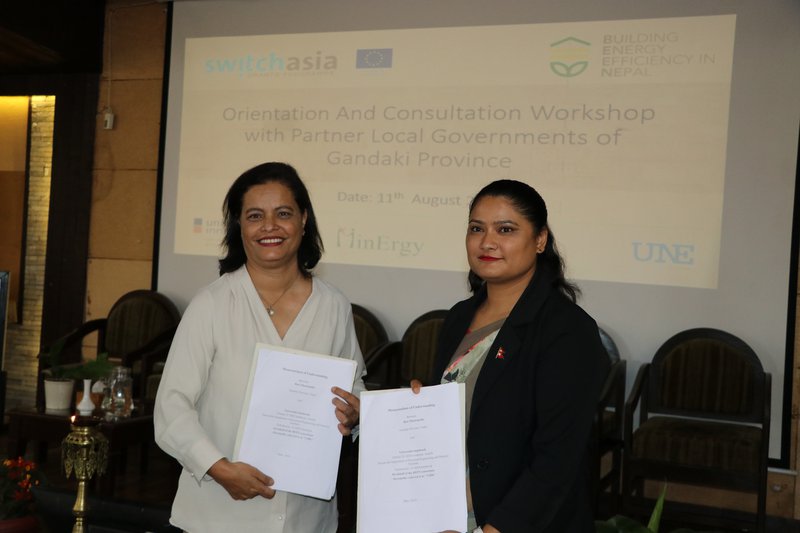
BEEN project officials said that they will assist in the development of passive design guidelines, design tools, technical standards, and manuals, as well as training programs in collaboration with local governments and related associations; capacity building throughout the building sector's value chain to utilize project-developed measures.
Because project implementation necessitates the active participation of local governments, their policies and choices have a direct impact on energy consumption trends within their domains. Municipal authorities' lack of awareness and comprehension of energy-efficient building materials and procedures is a major source of concern.
The statements expressed during the workshops by the local government leaders showed that the project is moving right directions to achieve its goal in project period.

Keshab Poudel
Poudel is the editor of New Spotlight Magazine.
- FOURTH PROFESSOR Y.N. KHANAL LECTURE: Nepal-China Relations
- Jun 23, 2025
- Colonel JP CROSS: Centenary Birthday
- Jun 23, 2025
- REEEP-GREEN: Empowering Communities with MEP
- Jun 16, 2025
- BEEN: Retrofitted For Green
- May 28, 2025
- GGGI has been promoting green growth in Nepal for a decade: Dr. Malle Fofana
- May 21, 2025




